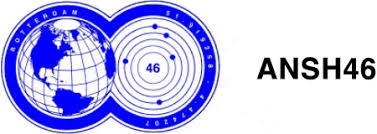Share plan for employees?
We are setting up a stock plan within a week. Book your free intake now.


































































What are shares
In some instances employers choose to offer shares to employees. When an employer allows an employee to become a shareholder this can be seen as the most extreme employee participation option for a company, since the employee will become a shareholder of the company and therefore will share in the development of shareholder value.
Although this can be considered one of the best incentives for employees to stick to the company, you must take into account that employees obtain specific rights - shareholder rights - that allow them to have a huge influence in the company (see below).
Transferring shares to an employee is not the only step. Before issuing or transferring shares, you should sign a shareholder agreement with the employees. In this document, you describe the rules that apply between the different shareholders. This is important in order to avoid any misunderstandings in the future. On top of that, to benefit from possible future proceeds, the employee needs to have a holding company as well.
Becoming a shareholder of the company, means that employees will have a position in the corporate body that has the most power within the company, the general meeting of shareholders. Although it's common to lay down specific agreements in a so-called “shareholders agreement”, it is important to remember that under Dutch law a shareholder always has specific rights. These rights are attached to the shares and therefore must always be taken into consideration.
share plan Advantages:
- Does not affect the liquidity of the company
- Creates highest form of engagement from employees as it involving employees in the decision making process due to voting rights
share plan Disadvantages:
- Tax risks
- Valuation needed when an award takes place
- Dilution of shares
- Setup and maintenance costs are high in comparison to other incentives
































































And what are these rights that must be taken into consideration?
In some instances employers choose to offer shares to employees. When an employer allows an employee to become a shareholder this can be seen as the most extreme employee participation option for a company, since the employee will become a shareholder of the company and therefore will share in the development of shareholder value.
Although this can be considered one of the best incentives for employees to stick to the company, you must take into account that employees obtain specific rights - shareholder rights - that allow them to have a huge influence in the company (see below).
Transferring shares to an employee is not the only step. Before issuing or transferring shares, you should sign a shareholder agreement with the employees. In this document, you describe the rules that apply between the different shareholders. This is important in order to avoid any misunderstandings in the future. On top of that, to benefit from possible future proceeds, the employee needs to have a holding company as well.
Becoming a shareholder of the company, means that employees will have a position in the corporate body that has the most power within the company, the general meeting of shareholders. Although it's common to lay down specific agreements in a so-called “shareholders agreement”, it is important to remember that under Dutch law a shareholder always has specific rights. These rights are attached to the shares and therefore must always be taken into consideration.
Non-voting shares, a potential way to mitigate the above
As described above, rights attached to the shares can't be neglected. If you do so, decisions taken in the general meeting can be challenged and can qualify as “null and void”, meaning the decision is considered invalid and thereby not legally binding.
It is important to realize that the aforementioned rights remain the same if non-voting shares are issued. The only difference is that non-voting shareholders are not allowed to vote on specific topics which are on the agenda for a meeting. Non voting shareholders are allowed to contribute during a shareholders meeting, the non-voting only reflects not being able to vote on specific agenda items.
So when do I offer shares to an employee?
- When the employee is the successor to the owner of the company and therefore must purchase the shares
- When the employee is willing to invest a substantial amount of money in the company
In all other situations there are better alternatives to tie an employee to the company, such as Stock Appreciation Rights or options.
What could be an alternative for offering shares?
A commonly used solution in the Netherlands is the issuance of shares to a (yet to be established) foundation, which in turn issues depositary receipts (also called certificates of shares) to employees. By doing so, a separation is created between the economic rights (dividend) and the legal rights (voting rights) which are attached to the shares. The shares are held by the foundation and it issues depositary receipts to the employees with the obligation to distribute the existing proceeds immediately to the employees. By issuing depositary receipts, the employees don't have the rights that are attached to the shares.
The foundation, the employer and the employees jointly come to an agreement. Setting up a foundation in reality forces the employer and the employee to draft an additional agreement to safeguard themselves in certain situations like when the employee becomes ill, commits fraud or breaches a contract that is in place. This agreement will deal with the basic terms and conditions, such as: good / bad leaver conditions, possible consent matters and competition clauses.
As you can imagine, this construction needs involvement from a lot of experts, such as notaries, tax advisors and valuation experts. This construction adds an extra entity, a foundation, which forces you to maintain additional records for the company, in addition to keeping track of all issued and distributed shares. Therefore, we usually recommend a SAR
Tax implications
The award itself
The awarding of a share or depositary receipt could be considered as wage for the employee in case he pays less than the market value for the shares at the moment of awarding. In that case, the difference between the paid price (if any) and the market value qualifies as wages and will be taxed accordingly against a progressive tax rate of 37,10% up to 49,5%. The employer is obliged to withhold and pay these wage taxes. Common practice is that the employee only has to pay the nominal value of the shares. As a result of this, the tax risks of an awarding of shares or depositary receipts are relatively high as there is a major chance that the employee has been benefited by such an awarding. Therefore, the market value needs to be determined at the time of the awarding to quantify the tax liability. In light of this, it is crucial that a proper valuation is performed. The Dutch tax authorities will look at the valuation with a critical eye. Such a valuation should therefore be performed by a valuator to determine and mitigate the tax liability. Without a valuation, the company will run a tax risk as it is uncertain whether the employee has been benefited by the awarding. In the worst case, the tax authorities may levy additional assessments with high fines.
Tax treatment after transfer
A major tax advantage of receiving actual shares or depositary receipts is the tax treatment after the transfer. If the size of the shares or shares depositary receipts is less than 5%, this kind of asset will qualify as a so-called “box 3 asset” and will be taxed on a notional income based on the value of the shares or depositary receipts on January 1 of each fiscal year against a tax rate of 31%. The notional income is set at 1,898 % - 5,69% depending on the total net value of the box 3 capital. An actual dividend or capital gain on shares or depositary receipts will not be taxed which may be most favourable in case the capital gain (as a result of an exit) is very high. Expats who have the 30% ruling with an award of less than 5% will be exempt from Dutch box 3 taxation at all.
When the received shares or depositary receipts are at least 5% of the capital of the company, these interests will qualify as a so-called substantial interest and all income derived from the shares or depositary receipts (i.e. dividends and capital gains) will be taxed in box 2 against a tax rate of 26,9%. Common practice in the Netherlands would be that the employee in such cases will set up a fully-owned holding company which will hold the shares or depositary receipts of the company. As the holding company owns at least 5% interest in the company, the shares or depositary receipts will qualify for the participation exemption. As a result, all dividends and capital gains received by the holding company on the shares or depositary receipts will be tax exempt from Dutch corporate income. Naturally, when the holding company would pay dividends to the employee/shareholder, the dividend would be taxed at 26,9%.
Income derived from a carried interest, sweet equity and similar forms of remuneration qualifies as a lucrative interest (“lucratief belang”) for employees when certain conditions are met. Such a lucrative interest is taxed as other income in box 1. In principle, the income from a lucrative interest is taxed at progressive rates up to 49,5% from the employees through their personal income tax return.
Conclusion
Shares and/or depositary receipts are a solid structure for employee participation, but come with a complicated and detailed structure which demands involvement of several external parties.
Why RoundE?
RoundE is your partner in employee participation plans. Instead of hiring expensive lawyers to set up your participation plan, we developed in-house software to streamline this process: saving you time and money
Quality
Our plans are checked by both tax and fiscal specialists. You also get a , so the contract fits your needs perfectly
Fair pricing
We besparen kosten door ons bedrijf online te runnen en het hele proces te automatiseren, waardoor we zeer concurrerende prijzen kunnen aanbieden.
Premium service
You can contact us at anytime and one of our legal experts will be ready to help you. With any purchase, you also get a free consult with one of our experts


